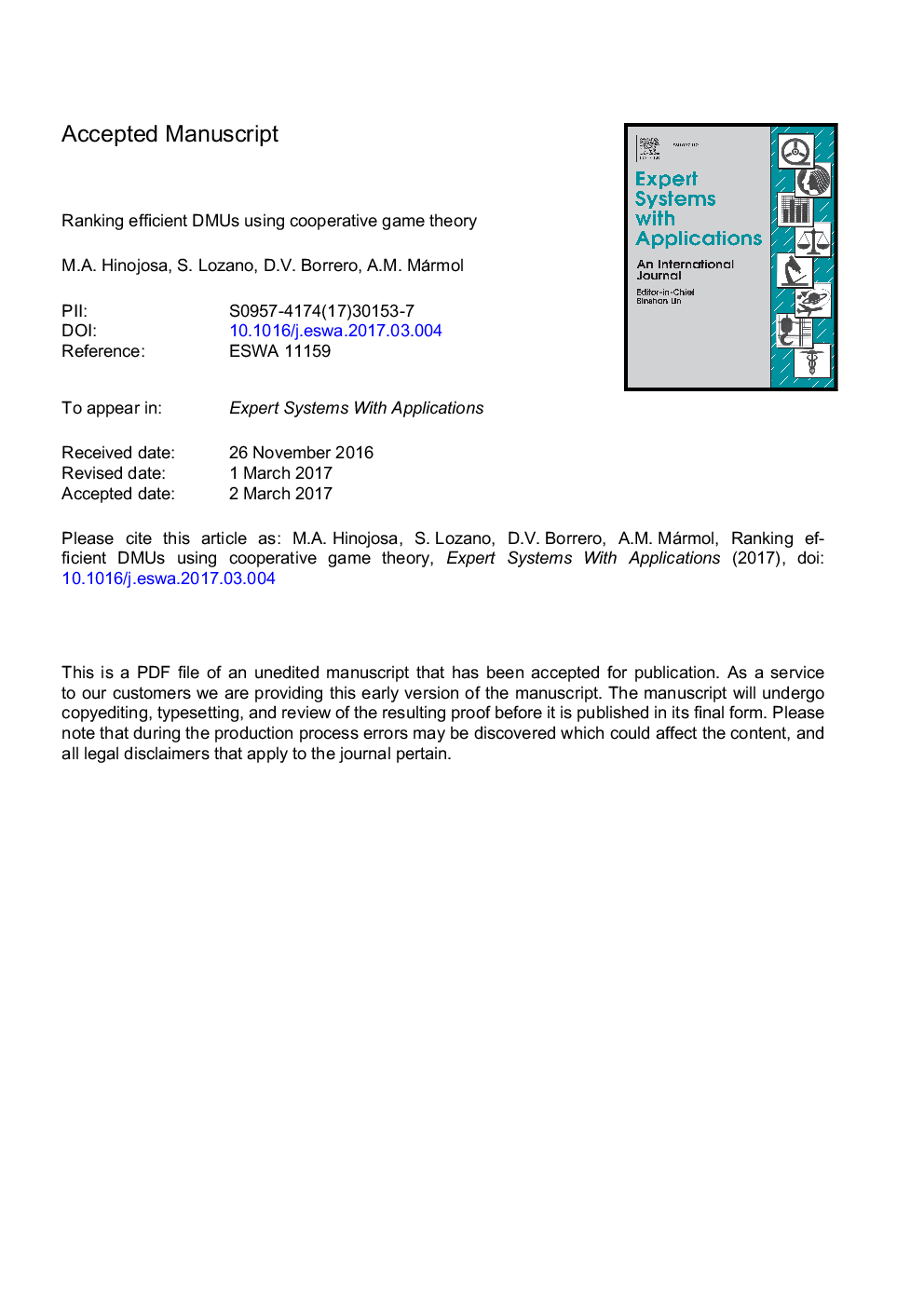| کد مقاله | کد نشریه | سال انتشار | مقاله انگلیسی | نسخه تمام متن |
|---|---|---|---|---|
| 4943191 | 1437626 | 2017 | 33 صفحه PDF | دانلود رایگان |
عنوان انگلیسی مقاله ISI
Ranking efficient DMUs using cooperative game theory
دانلود مقاله + سفارش ترجمه
دانلود مقاله ISI انگلیسی
رایگان برای ایرانیان
کلمات کلیدی
موضوعات مرتبط
مهندسی و علوم پایه
مهندسی کامپیوتر
هوش مصنوعی
پیش نمایش صفحه اول مقاله

چکیده انگلیسی
The problem of ranking Decision Making Units (DMUs) in Data Envelopment Analysis (DEA) has been widely studied in the literature. Some of the proposed approaches use cooperative game theory as a tool to perform the ranking. In this paper, we use the Shapley value of two different cooperative games in which the players are the efficient DMUs and the characteristic function represents the increase in the discriminant power of DEA contributed by each efficient DMU. The idea is that if the efficient DMUs are not included in the modified reference sample then the efficiency score of some inefficient DMUs would be higher. The characteristic function represents, therefore, the change in the efficiency scores of the inefficient DMUs that occurs when a given coalition of efficient units is dropped from the sample. Alternatively, the characteristic function of the cooperative game can be defined as the change in the efficiency scores of the inefficient DMUs that occurs when a given coalition of efficient DMUs are the only efficient DMUs that are included in the sample. Since the two cooperative games proposed are dual games, their corresponding Shapley value coincide and thus lead to the same ranking. The more an efficient DMU impacts the shape of the efficient frontier, the higher the increase in the efficiency scores of the inefficient DMUs its removal brings about and, hence, the higher its contribution to the overall discriminant power of the method. The proposed approach is illustrated on a number of datasets from the literature and compared with existing methods.
ناشر
Database: Elsevier - ScienceDirect (ساینس دایرکت)
Journal: Expert Systems with Applications - Volume 80, 1 September 2017, Pages 273-283
Journal: Expert Systems with Applications - Volume 80, 1 September 2017, Pages 273-283
نویسندگان
M.A. Hinojosa, S. Lozano, D.V. Borrero, A.M. Mármol,